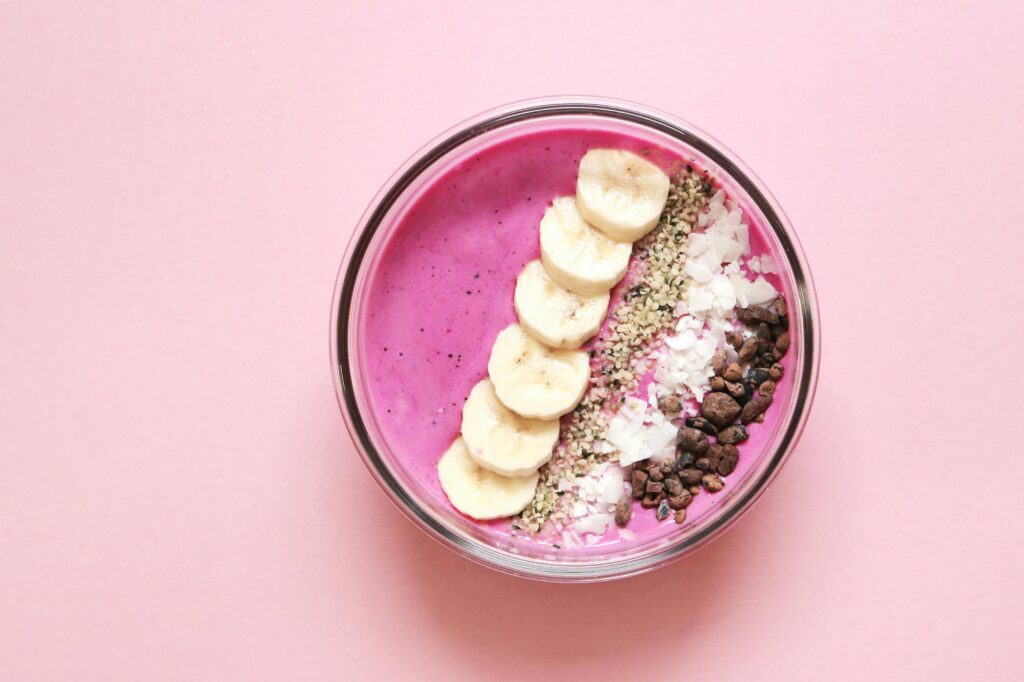Starting your day with a heart-healthy breakfast can set a positive tone for your entire day. It’s not just about feeling full – it’s about nourishing your body and supporting your cardiovascular health.
A heart-healthy breakfast includes foods low in saturated fat and sodium, while being rich in fiber, lean protein, and healthy fats.
You can easily create delicious meals that fit these criteria. Oatmeal, whole grain toast, and yogurt parfaits are great options to start with.
Don’t worry if you’re short on time in the mornings. There are many quick and easy heart-healthy breakfast recipes you can whip up in 15 minutes or less.
From egg tartines to muesli with raspberries, you’ll find tasty options that keep your heart happy and your taste buds satisfied.
Essential Components of a Heart-Healthy Breakfast
A heart-healthy breakfast sets you up for a great day. It gives your body the right mix of nutrients to keep your heart strong. Let’s look at what makes a breakfast good for your heart.
Understanding Nutritional Value
When you pick your breakfast, think about what’s in it. Go for foods low in saturated fat and cholesterol. These can raise your bad (LDL) cholesterol.
Instead, choose foods with good fats like avocados or olive oil.
Look for foods high in potassium. This mineral helps control your blood pressure. Bananas and oranges are good choices.
Try to get some vitamin E in your meal. It may help protect your heart. Nuts and seeds are packed with it.
Don’t forget about omega-3 fatty acids. They’re great for your heart. You can find them in fish like salmon or in chia seeds.
The Role of Fiber and Protein
Fiber and protein are key parts of a heart-healthy breakfast. Oatmeal is a top choice because it’s full of fiber. It can help lower your cholesterol.
Protein helps you feel full longer. This can help with weight loss, which is good for your heart.
Eggs are a great protein source. If you don’t eat eggs, try tofu scramble.
Soluble fiber is extra good for your heart. It’s found in oats, apples, and berries. Try to mix these into your breakfast.
A good goal is to get both fiber and protein in your meal. This combo keeps you full and helps your heart.
Importance of Minimized Sugar Intake
Cutting down on added sugar is a big part of a heart-healthy breakfast. Too much sugar can lead to weight gain and raise your risk of heart disease.
Check labels for hidden sugars. They can be in cereals, yogurts, and even “healthy” breakfast bars.
Choose plain versions and add your own fruit for sweetness.
Natural sugars in whole fruits are okay. They come with fiber and other good nutrients. But watch out for fruit juices. They often have lots of sugar without the fiber.
Try swapping sugary drinks for water or unsweetened tea. This small change can make a big difference for your heart health.
Innovative Heart-Healthy Breakfast Ideas
Start your day with these tasty and nutritious breakfast options. They’re packed with ingredients that support heart health and keep you energized all morning.
Savory Options to Start Your Day
Try an egg tartine for a quick and satisfying meal. Top whole-grain toast with mashed avocado, a poached egg, and a sprinkle of fresh herbs.
For a protein-rich option, make a tofu scramble. Crumble firm tofu and cook it with spinach, bell peppers, and turmeric. Serve with a side of roasted sweet potatoes.
Experiment with a breakfast salad. Mix greens, quinoa, sliced strawberries, and a dollop of Greek yogurt. Drizzle with a light vinaigrette for a refreshing start to your day.
Refreshing Smoothies and Bowls
Whip up a strawberry peach smoothie using frozen fruits, almond milk, and a handful of spinach. Add a scoop of plant-based protein powder for extra staying power.
Create a colorful smoothie bowl by blending frozen banana, berries, and Greek yogurt. Top with chia seeds, sliced almonds, and a drizzle of nut butter.
Try an acai bowl for a tropical twist. Blend acai puree with banana and top with granola, coconut flakes, and fresh fruit.
Sweet Delights Without the Guilt
Make two-ingredient banana pancakes by mashing a ripe banana with two eggs. Cook on a griddle and top with berries and a touch of maple syrup.
Prepare grab-and-go oatmeal cups by mixing oats, chia seeds, and almond milk in muffin tins. Refrigerate overnight and enjoy in the morning with fresh fruit.
Create an “everything bagel” avocado toast by mashing avocado on whole-grain bread and sprinkling with sesame seeds, dried garlic, and onion flakes. Add sliced tomato for extra flavor.
Building a Heart-Healthy Pantry
Stocking your kitchen with heart-friendly foods makes it easier to prepare nutritious meals. A well-planned pantry sets you up for success in creating tasty, heart-healthy breakfasts.
Must-Have Staples
Your heart-healthy pantry should include whole grains like rolled oats and whole-grain bread. These provide fiber and nutrients. Keep canned beans and lentils on hand for quick protein options.
Stock up on fruits like bananas for easy smoothies or pancakes. Frozen berries are great for adding to oatmeal or yogurt.
Don’t forget eggs – they’re versatile and packed with protein. Low-sodium canned vegetables can be added to omelets or breakfast burritos.
Here’s a quick list of staples:
- Rolled oats
- Whole-grain bread
- Canned beans and lentils
- Bananas and frozen berries
- Eggs
- Low-sodium canned vegetables
Choosing Heart-Friendly Fat Sources
Pick healthy fats to boost your heart health. Nuts and seeds are excellent choices. They’re full of good fats, protein, and fiber.
Peanut butter is a tasty spread for toast or addition to smoothies. Choose natural versions without added sugar or oils.
Avocados are another great fat source. They’re perfect for spreading on toast or adding to eggs.
Use olive oil for cooking. It’s rich in monounsaturated fats, which are good for your heart.
Here’s a list of heart-friendly fat sources:
- Nuts (almonds, walnuts)
- Seeds (chia, flax)
- Natural peanut butter
- Avocados
- Olive oil
Snackable Seeds and Nuts
Seeds and nuts are perfect for heart-healthy snacking or adding crunch to your breakfast. Pumpkin seeds are packed with nutrients and easy to sprinkle on yogurt or oatmeal.
Almonds and walnuts are great for heart health. They contain healthy fats and protein. Grab a handful for a quick snack or chop them to top your breakfast.
Chia seeds are tiny powerhouses. They’re rich in omega-3 fatty acids and fiber. Add them to overnight oats or smoothies for extra nutrition.
Try this nut and seed mix:
- 1/4 cup pumpkin seeds
- 1/4 cup almonds
- 1/4 cup walnuts
- 2 tbsp chia seeds
Mix and store in an airtight container. Sprinkle on your breakfast or enjoy as a snack.
Adapting Breakfast for Health and Weight Loss Goals
Making smart choices for your morning meal can boost heart health and help you reach your weight goals. Small changes to your breakfast routine can make a big difference.
Portion Control and Meal Timing
Eating the right amount at the right time is key for a heart-healthy breakfast.
Start by using smaller plates to control portions. Fill half your plate with fruits or veggies, a quarter with lean protein, and a quarter with whole grains.
Try to eat within an hour of waking up. This can jump-start your metabolism and help you burn more calories throughout the day.
If you’re not hungry right away, it’s okay to wait a bit. Just don’t skip breakfast altogether.
For weight loss, aim for 300-400 calories at breakfast. This gives you energy without overdoing it. You can use measuring cups or a food scale to get portion sizes right.
Integrating Superfoods
Adding superfoods to your breakfast can boost its health benefits. Berries, oats, and nuts are great choices. They’re packed with fiber and nutrients that support heart health.
Try sprinkling chia seeds on your yogurt or adding spinach to your eggs. These small additions can make a big impact.
Fresh herbs like basil or cilantro can add flavor without extra calories.
For a protein boost, consider lean turkey sausage or sliced turkey breast. These options are lower in fat than traditional breakfast meats. Pair them with whole grain toast and avocado for a filling meal.
Don’t forget about drinks. Green tea or a small glass of low-sodium vegetable juice can add extra nutrients to your morning routine.
Frequently Asked Questions
Eating a heart-healthy breakfast can be easy and tasty. Here are answers to common questions about starting your day with foods that support your heart.
What are some quick and simple heart-healthy breakfast options?
You can whip up a heart-healthy breakfast in minutes. Try oatmeal topped with berries and nuts. Whole grain toast with avocado and a hard-boiled egg is another good choice. Greek yogurt with fruit and a sprinkle of granola is quick and filling.
Can you suggest heart-healthy breakfast recipes for weight loss?
For a filling breakfast that may help with weight loss, try overnight oats. Mix oats with low-fat milk, cinnamon, and berries. Let it sit in the fridge overnight. In the morning, add a spoonful of almond butter for protein.
Smoothies made with leafy greens, fruit, and Greek yogurt are also good options.
What do cardiologists recommend including in a breakfast for heart health?
Cardiologists often eat oatmeal for breakfast. They suggest adding foods high in fiber, like whole grains and fruits. Healthy fats from nuts or avocados are good too. They also recommend including some lean protein, such as egg whites or low-fat dairy.
How can I make a heart-healthy breakfast with eggs?
You can make a veggie-packed omelet with egg whites or whole eggs. Add spinach, tomatoes, and mushrooms. Serve with a slice of whole-grain toast and avocado.
Another option is a hard-boiled egg with whole grain toast and fruit.
What are some heart-healthy breakfast ideas for someone always on the go?
For busy mornings, try making overnight oats in a jar. You can grab it as you head out the door. A whole grain breakfast bar with a piece of fruit is another quick option.
You could also blend a smoothie and take it with you in a travel cup.
What does the American Heart Association recommend for a heart-healthy breakfast?
The American Heart Association suggests eating whole grains, fruits, and vegetables. They also recommend low-fat dairy and lean proteins. They advise limiting added sugars and saturated fats.
Try whole grain toast with peanut butter and banana, or oatmeal with nuts and berries.


